Metroland Studio at Kilburn Square: Residencies Programme with Boram Moon
–
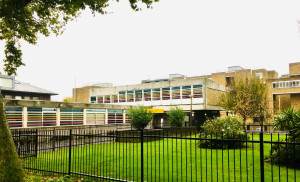
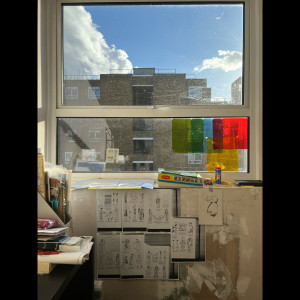
Photo: courtesy of the artist
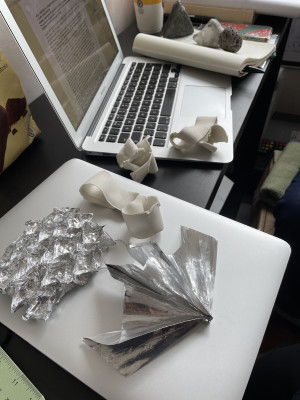
Studio view, Metroland Studio, Kilburn, London, April 2022
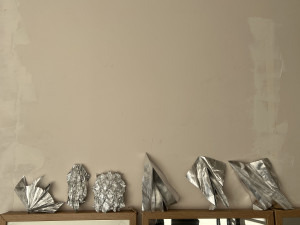
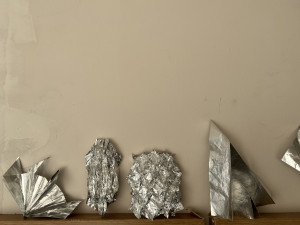
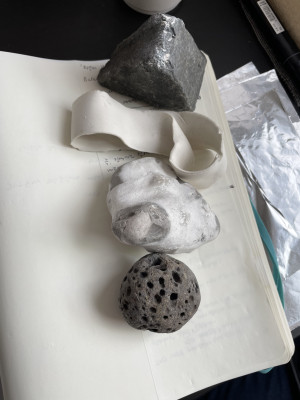
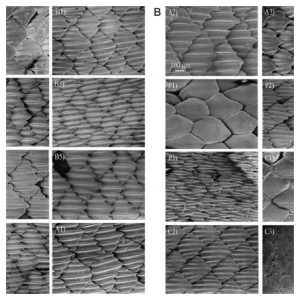
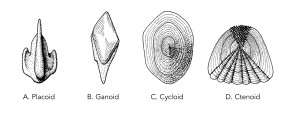
Throughout 2020, the London Borough of Brent was the Mayor of London’s Borough of Culture. In that year-long celebration of the cultural life of Brent, public spaces, sites and community-led organisations across the borough were invited to work with the Borough of Cultures programme to participate in the inaugural Brent Biennial.
In this context, Metroland Cultures formed as a new charity to produce and present the Brent 2020 programme, to support culture and creativity in Brent into the future.
Two years later, as the second iteration of the Brent Biennial is taking shape, The Showroom continued its partnership with Metroland Cultures as part of the residencies programme at Metroland Studio, Kilburn Square. A site for research, experimentation and production, the ongoing studio residencies carry forward the core aims of Metroland Cultures to make new places for artists and art in Brent; and to build a legacy for the borough and its surrounding spaces, institutions and organisations.
Artist Boram Moon was in residence at Metroland Studio between September 2021–May 2022.
This invitation built upon conversations between Moon and The Showroom throughout 2020-21, reflecting on the production of support structures for new artistic research, and ways of sustaining a wider framework for Moon’s work between the UK and South Korea. Since February 2021, together with two other artists, Myungwoo Jung and Ikjung Cho, Moon has been co-running Windmill, a performance space in Seoul, South Korea.
The studio residency at Metroland created a dedicated working space for Moon as a site for the development of her ideas; and the generation of future public programming with Windmill, strands of which will be developed towards co-hosting in partnership with The Showroom in 2022-23.
Boram Moon is an artist living and working between the UK and South Korea. She has an MA in Contemporary Art Practice (Performance Pathway) from the Royal College of Art, London, 2018; and a BA in Painting from Ewha Womans University, Seoul, 2014.
Moon works across performance, sculptural installation and video with a focus on the sensory responses evoked by power, pressure, posture and gesture. By interrupting the physical integrity of materials, she investigates the triggers created by memory and the unconscious. Her works are often instructed by performance scores drawn from translations condensed through automated physiological (bodily) memories; or recording the movements of the body in relation to objects and spaces.
Scales is a research project and work-in-progress for Moon, which has been in early stages of conception and development at Metroland Studio in Brent.
Through poetry, object-making and performance, Moon explores the performative potential and bodily role of costume. Her new research explores the representation of costume over time - either through processes of hiding, concealing or emphasis on the skin - opening up approaches to the formation of the body in relation to the gaze of others.
Moon writes,
“Scales: one dictionary definition of a scale is a small, thin, horny and bony plate protecting the skin of fish and reptiles, typically overlapping one another.
My research aims to explore the social scales that are assigned to us; and to focus in-depth on the ways in which individual subjects have utilised costume in transformative ways; how costume has a presence in visual art in relation to the body and how it might have new possibilities in the present.
I began this research with an interest in the aesthetic of costume in the realm of performance art, and the metaphorical representation it implies. Responding to the long histories and anthropological research surrounding cultures of costume across geographies, I ask the question, ‘what made us begin to cover the bare skin of our bodies?’ I will be expanding the focal point of this question to explore the conflicts and gaps between costume as a symbol of individual desire, or through the many ways in which costume symbolises social status and background.
Wearing clothes, and applying something to our faces, goes beyond the purpose of decoration and has an ambivalent relationship to identity; often protecting, hiding or revealing us in relation to the gaze of others. I will examine how this has been expressed through various media in visual art; or through another/alter ego in the virtual world, such as in MetaBUS as Industry 4.0.
I plan to structure the research with a web page and share it with other visual artists working with the body / objects, to share and encourage points of concern facing each other. I will be inviting around five people to join workshops through which we will learn makeup/special effects and cutting/sewing techniques, to allow us to try new formative languages with a sculptural aspect. I look forward to the expansion of the area of costume. The work will be represented in poems, object making and performance.”
Scales (fragments)
The body is worn out from birth.
We just have to sew it up, moment to moment.
몸은 생겨나면서 부터 계속 닳는다.
그저 매 순간 기워가며 살아야 한다.
…
The angry old lady only looked for the ankles to hang on the tip of her cane in her neighbourhood.
무언가에 잔뜩 화가난 할머니는 지팡이끝에 걸릴 발목만 찾아 다닌다
…
Early in the morning, in the chilly fish market,
the plates of armours are peeled off by the muscles of dealers. The frosty scales are scattered on the ground.
Pieces of bodies are on the stand, and hundreds of eyes are lined up looking at the ceiling.
Time goes by, a smell has fogged through the space.
이른 아침의 섵푸른 수산시장에는 생선장수들의 날선 팔근육으로
그 작은 갑옷들이 벗겨내진다 열심히 일할수록 서리같은 비늘이 바닥으로 흩뿌려진다.
도막난 몸통들이 곳곳에 전시되고 무수한 눈깔들이 줄지어 천장만 바라보고 있다
공간에는 시간이 갈수록 콤콤한 냄새가 시각을 넘어선다.
…